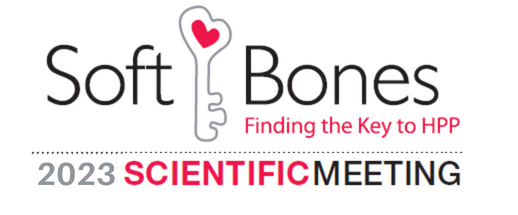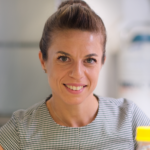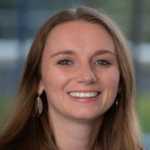HPP Research
Soft Bones funds research to better understand HPP with the goal of finding a cure.

2024 Annual Maher Family Research Grant is Now Open!
Calling all researchers, faculty members, senior postdoctoral trainees, and research associates.
We are awarding a $25,000 seed grant that is directly related to hypophosphatasia. Soft Bones continues to promote innovative research concerning HPP by new and established investigators.
For complete grant details, please review our flyer, and download the grant application. The deadline to apply is on World HPP Day, October 30, 2024. The winner of the grant will be notified by December 1, 2024.
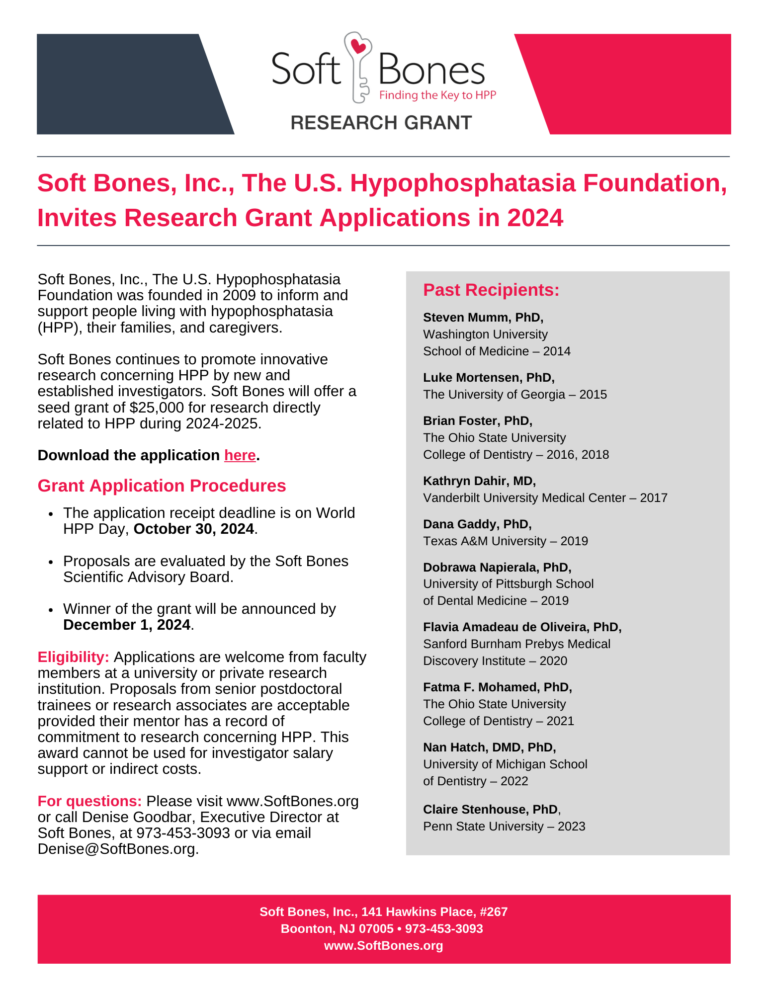
We believe a cure is possible
With modern-day science of gene editing and gene therapy, we work closely with researchers and clinicians to champion collaboration, reduce duplication of effort, share findings and unite the global HPP community. We also work to position HPP as a favorable subject of research through a global HPP registry. Areas we support include:
- Gene therapy and gene editing
- CoRDS International HPP Contact Registry – Researcher access
- Research of new therapies or improvement to existing therapy
- New HPP investigators through annual $25,000 seed grant – The application cycle is now closed. Winner will be announced on December 1, 2024.
- HPP scientific exchange through other grants
- HPP TeleECHO series. On-demand viewing of previously recorded sessions can be found on HPP Connect. For information contact us.
HPP Patient Registry
Soft Bones has partnered with Coordination of Rare Diseases at Sanford (CoRDS) to create an International HPP Contact Registry. The registry provides patients and caregivers with a secure means of making their basic disease information available to researchers without sacrificing privacy. By joining the registry, you can help researchers see the whole picture and gain valuable information for a disease that they know too little about. Information learned through the registry plays a vital role in improving treatments and finding a potential cure.
For more information, contact CoRDS at cords@sanfordhealth.org or (877) 658-9192.
You can also access the
CoRDS Participant Brochure,
CoRDS Registration Tip Sheet
CoRDS Podcast Info Card.
Once ready, you may register using the link below, or call the CoRDs office directly.
myHPP App
Soft Bones sees our HPP community as partners in research. Our health data contains valuable information that holds the key to scientists’ most pressing questions about HPP. By capturing this information, we can:
- Identify the needs of the patients and families.
- Develop an evidence-based approach to meet those needs.
- Uncover new targets for evolving therapies.
Patient participation is the single most critical component of the myHPP app. Help us identify the needs of patients and families to create evidence-based approaches and uncover new goals for therapies.
How can you help?
Physicians
Please make patients aware and encourage them to use the myHPP app! If you want to receive printed brochures, for your office or institution, email us.
Researchers
Do you have a research question that can be addressed by patient insights? Please email us.
Learn more about the myHPP App.
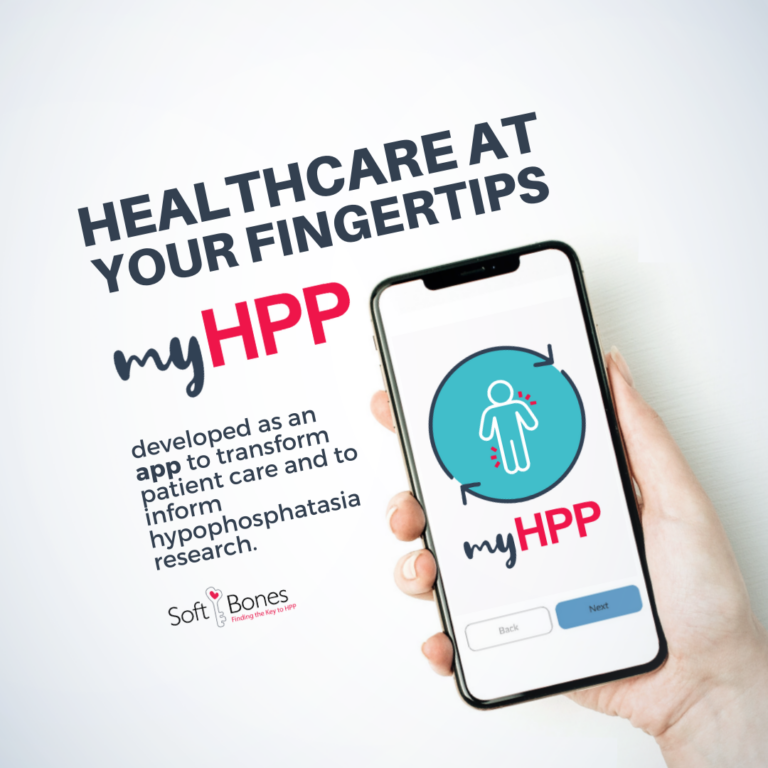
A Look Back at the Soft Bones
Second International Scientific Meeting
Soft Bones held its Second International Scientific Meeting that brought together clinicians, physician-scientists, basic science researchers, and industry representatives from around the globe to better understand and to improve the treatment of hypophosphatasia (HPP). Attendees shared the latest advances and discussed ongoing and future research concerning this rare and complex inborn-error-of metabolism that manifests the broadest range of severity of all skeletal diseases


